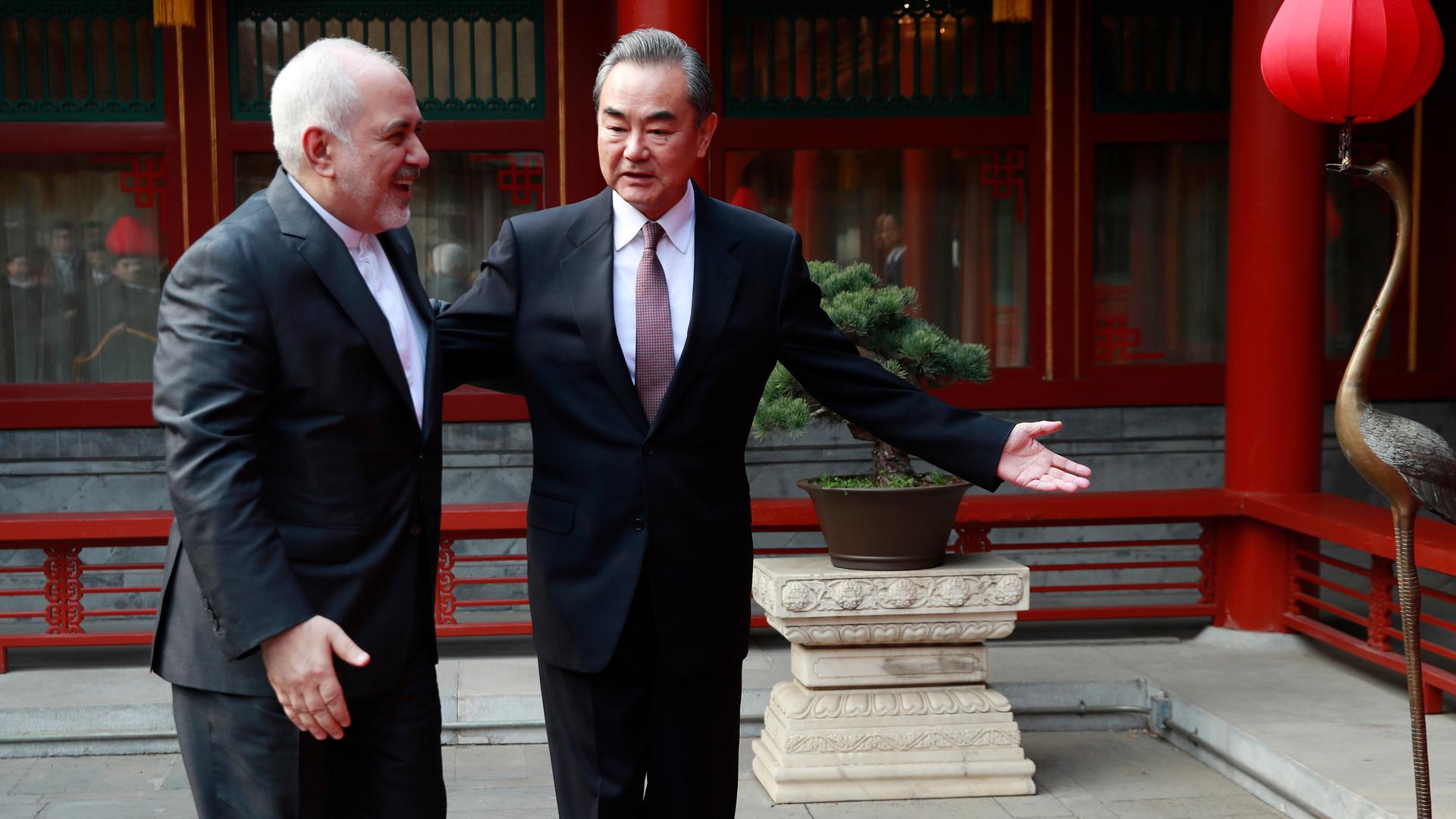A Chinese investment pledge to the tune of a whopping $400 billion puts a wrench in American plans to isolate Iran – but what will it cost Iran?
While the United States Administration wrestles with exerting “maximum pressure” on Iran, and the European signatories of the Joint Comprehensive Plan of Action (JCPOA) are trying to salvage the nuclear deal, China has decided to incorporate Iran into its Belt and Road Initiative (BRI) with pledged investments totaling some $400 billion.
This is a major shift not only in terms of economic support for Iran but also in challenging the present global balance of power and the geopolitics of the Middle East.
According to Petroleum Economist, and the related Iranian reporting, the central pillar of the new deal is that China will invest $280 billion developing Iran’s oil, gas and petrochemicals sectors. That Iran’s state-run Press TV published cited the same story, lends credibility to the initial report.
Another $120 billion will go into upgrading Iran’s transport and manufacturing infrastructure, bringing it more in line with Chinese specifications and operations.
The move would be welcomed by Iranian hardliners, especially the powerful Iranian Revolutionary Guards Corps (IRGC) that has been hit hard by US sanctions and has repeatedly advocated closer ties with China and Russia rather than the West.
“We can form a consortium composed of Iranian, Russian, Chinese and Indian big oil investors to preserve our dominance on the Iranian resources and at the same time increase our foreign trade volume,” said an article in the hardline Keyhan newspaper as early as 2018 after US President Donald Trump withdrew from JCPOA and sanctioned Iran.
Iran and China already signed a strategic partnership agreement in 2016, but the latest deal takes cooperation to a whole new level.
China has now offered massive long-term investment in the Iranian economy in return for far-reaching rights over how the money is spent and the products that eventually flow from it.
Details have not yet been revealed but an Iranian source, most probably with permission to leak, has spoken exclusively to Petroleum Economist confirming highly favourable terms for Chinese companies with first refusal on oil and gas projects and ample opportunities to become involved with any and all petrochemical projects in Iran.
The most outlandish part of the new agreement is that it will allow “up to 5,000 Chinese security personnel on the ground in Iran to protect Chinese projects.”
Iran’s Chief of Staff of the Armed Forces, General Hossein Baqeri, went to China Wednesday to hold talks with his Chinese counterpart, Li Zuocheng, on “reinforcing military relations and developing cooperation.”
The presence of Chinese security personnel in Iran will no doubt increase cooperation in military intelligence and make good the pledge of the 2016 agreement to “upgrade the level of cooperation of the Armed Forces of the two countries,” and “increase the exchange of consultations.”
Allowing China such a significant stake in Iran’s economic and military structures is unprecedented since the Revolution of 1979 when Iran warded off international interference with the motto “Neither East, Nor West”.
It arguably challenges the Islamic Republic’s Constitution, which foresees “complete rejection of colonial penetration and influence of foreigners.”
BRI has been described as “a form of economic imperialism that gives China too much leverage over other countries.” Iran will, for example, have to sell its oil at a discounted rate to China.
Yet, with over a 50 percent drop in oil and gas income due to US sanctions, China’s 25-year deal brings Iran several benefits.
Firstly, it allows Iran to expedite increases in oil and gas production from three of its key fields, notably the giant South Pars gas field.
Secondly, China has reportedly agreed to continue to import Iran’s oil and pay in “soft” currencies, including those of African and Central Asian states to avoid dollars.
Third, it will improve Iran’s diplomatic standing, enable it to benefit from the backing of two of the five permanent members of the UN Security Council, namely Russia and China.
The new deal could also explain Iran’s recent confidence in stepping away from JCPOA and criticising European countries for their “lack of commitment” to the deal.
“We have inclusive and strategic relations with Russia and China,” Iran’s foreign minister Javad Zarif boasted on September 1, soon after returning from his third trip this year to Beijing where he finalised the deal with his counterpart, Wang Yi.
Zarif, always an advocate of relations with the West, has personally suffered the humiliation of US sanctions as well as the harsh criticism of Iran’s hardliners. In the view of some commentators, the new deal is the “biggest triumph of his career.”
President Trump’s foreign policy of simultaneously aggravating China with trade tariffs and declaring a unilateral economic war on Iran has solidified relations between Beijing and Tehran, both critical of “the rise of [US] unilateralism.”
The new Iran-China alliance is likely to add to the already strong combined influence of Iran and Russia in the Middle East and signal the failure of the American pressure campaign which intended to isolate and reduce Iran’s hold in the region.
Author: Massoumeh Torfeh
Dr. Massoumeh Torfeh is a Research Associate at the London School of Economics and Political Science specialising in Iran and Afghanistan. Formerly she was a BBC journalist and UN spokesperson and director of communication.
Source










Discussion about this post